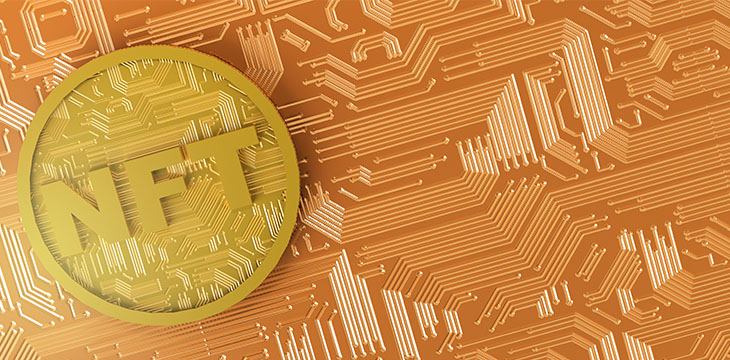Home » Business »
China’s largest tech firms, including Tencent, Ant Group, Baidu, and JD.com, have signed a pact to stop the secondary sales of non-fungible tokens (NFTs) and to introduce self-regulation rules.
According to a Reuters report, 30 companies and entities have signed the “self-regulatory initiative” is led by the Chinese Cultural Industry Association, pledging to collaborate to prevent speculation in digital collectibles.
The self-regulation pact has a total of 14 articles that, among others, stipulate that digital collectible marketplaces should implement identity checks for users and should not “contain financial assets or unlicensed financial products, including securities, insurance, credit and precious metals, in blockchain-supported goods.” It also spelled out that digital collectible marketplaces must have relevant certifications, including those required for blockchain service providers, internet culture operators, and telecom business operators. NFTs must only be denominated in fiat and not digital currencies.
Jin Peng, the secretary-general of the China Cultural Industry Association, noted that the pact could help the NFT industry contribute more meaningfully to the development of the real economy in China. The secretary added that it would also aid the use of digital collectibles to promote China’s excellent artistic culture.
“Different from most foreign platforms that apply NFT technology as financial products, domestic digital collections are more regarded as the category of digital cultural creativity,” the secretary said.
China’s official stance on digital collectibles
The industry-level initiative is in keeping with and affirming existing Chinese laws that ban speculation in digital assets. China has been implementing this ban across digital assets firms and block reward miners. However, it has allowed NFTs to thrive but warned against speculation or the involvement of digital assets in their trading.
The accommodation of NFTs has spurred the exploration of NFTs and metaverse projects among Chinese tech giants. Ant Group and Tencent were the first Chinese companies to launch digital collectible platforms. JD.com followed shortly after, while Baidu has so far issued its own digital collectibles collection.
Tencent has bigger plans to adopt digital collectibles. Last month, the internet and gaming giant revealed that it was setting up an extended reality unit to explore virtual reality and augmented reality technologies—innovations that form a backbone of the metaverse industry.
This unit is to form a core aspect of its business as the company is looking to expand it despite cutting costs in other divisions. It will also be Tencent’s first foray into hardware.
Watch: The BSV Global Blockchain Convention presentation, Buzzmint: Elevating NFTs
New to Bitcoin? Check out CoinGeek’s Bitcoin for Beginners section, the ultimate resource guide to learn more about Bitcoin—as originally envisioned by Satoshi Nakamoto—and blockchain.
BSV developer and creator of Jamify and TonicPow Luke Rohenaz stopped by the Brittany Bitz podcast to share his thoughts on everything related to BSV, Jamify, and the future of Bitcoin.
BoE said the United Kingdom needs to have “enhanced regulations” for the market even as it continues to grow and potentially poses a greater risk to financial stability.
Under the memorandum of understanding, Chainalysis’ UAE Centre of Excellence will provide a virtual training program in the blockchain field for government employees.
The European Central Bank wants to issue stern warnings to eurozone countries about the necessity of “harmonizing” digital assets regulations, Financial Times report.
Join the official Bitcoin SV Discord channel:
www.discord.gg/bsv

